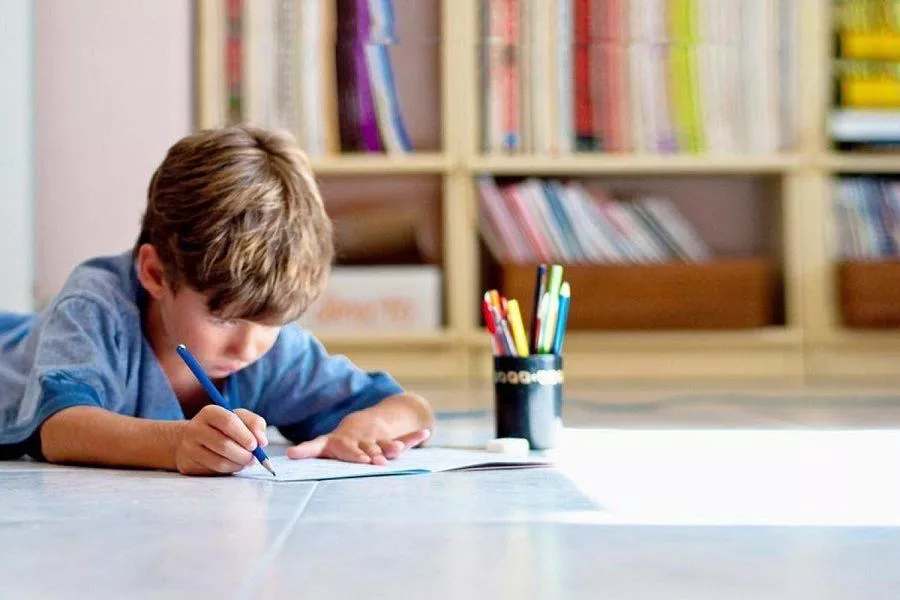It is the beginning of the school year again, and the children are falling in love with kindergarten. But it was a really torturous time for Lian Lian and Mom. Lianlian goes to kindergarten every day to go through a battle, crying and making a lot of noise, no matter how the teacher comforts her, the time in kindergarten is so torment. Watching other children gradually adapt to kindergarten life, Lianlian’s mother is really anxious and angry. In fact, the emotion expressed by love is what we often call separation anxiety in psychology, and it is one of the normal emotions in the process of human development. How should we face the long-term separation from our children for the first time? It is a compulsory course for every parent of us. First let’s take a look at what is separation anxiety?
How does separation anxiety affect children? Separation anxiety is a response to insecurity and fear in unfamiliar environments and strangers after a young child is separated from a loved one or an attachment figure. Many studies have shown that separation anxiety in early childhood is related to children’s intellectual development. If there is no effective treatment, it will reduce the effect of children’s intellectual activities, and even affect their creativity and social adaptability. That is to say, if a young child does not receive due comfort, companionship, and care when facing separation anxiety, his intelligence, interpersonal skills, and creativity will be adversely affected.
So, what factors are related to separation anxiety?
- Attachment type. Attachment is the initial social bond between an infant and the primary caregiver (usually the mother) and is an important marker of emotional socialization. The main types are:
(1) secure attachment, (2) avoidant attachment, and (3) resisting attachment. Among them, secure attachment is good and positive attachment, while avoidant and resistive attachment, also known as insecure attachment, are negative and bad attachments. Children with secure attachment were less anxious and more calm in the face of separation than children with insecure attachment. We must pay attention to the attachment relationship with the child, and give high-quality companionship and positive response when we first establish a relationship with the child, so that the child can feel loved and cared for. - Parenting style. Parenting style refers to a relatively stable behavior style and behavioral tendency that parents show in the process of raising and educating their children. Parents’ warm emotions and understanding can reduce children’s anxiety levels. Parental rejection and denial, overprotection, overintrusion, and severe punishment are associated with higher anxiety levels in children. Educational styles that are too protective of children can affect children’s behavior and cause anxiety in children.
- Genetics. Separation anxiety is also closely related to genetic factors. If the parent suffers from an anxiety disorder or frequently suffers from anxiety, the child will have higher levels of separation anxiety. In the face of separation anxiety in children, how should parents prevent and intervene? First of all, parents should give the child time to adapt before separating from the child, let the child know that he may need to face the unfamiliar environment alone, and at the same time cultivate the child’s self-care ability and provide a safe environment and atmosphere. Second, parents should Encourage children to play games with their friends, teach them how to interact with children, and guide them to realize that there will be more children and more interesting games in the new environment, and they will learn a lot of interesting things with the help of teachers. Knowledge and good expectations are formed. Finally, when many parents are separated from their children, they are very anxious. At this time, it is particularly important to adjust their mentality. Parents can go to unfamiliar environments with their children to adapt and understand the situation together, which can not only reduce their anxiety levels, but also gradually allow their children to adapt to the environment.
Separation anxiety in children is a common and serious problem that can have widespread and lasting effects on a child’s future. Therefore, we need to work together to make the children no longer anxious when they are separated. This article is scientifically checked by Wang Tao, chairman of the Medical Science Popularization Special Committee of the Chinese Popular Science Writers Association.

























